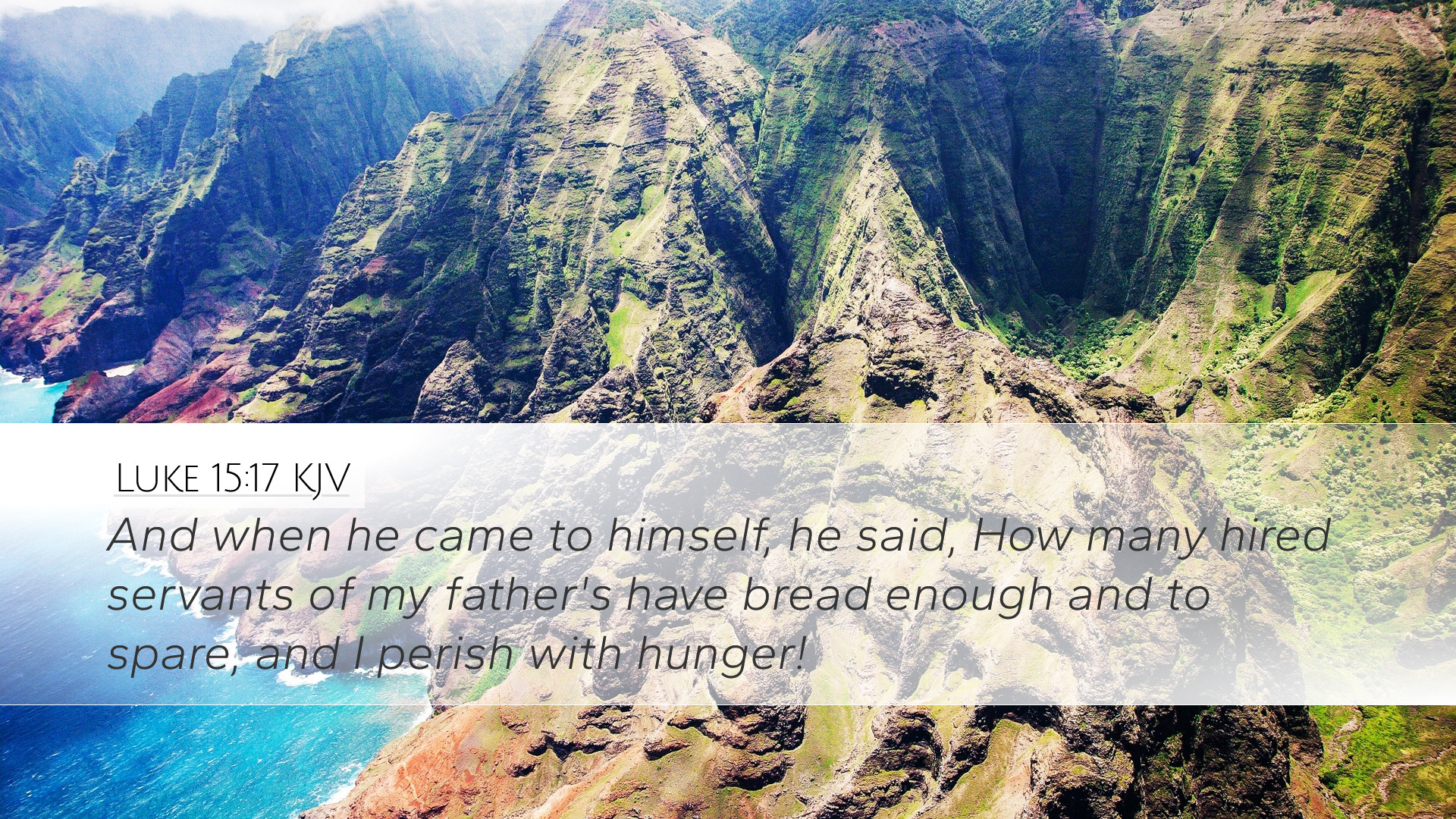Commentary on Luke 15:17
Verse: "But when he came to himself, he said, How many hired servants of my father's have bread enough and to spare, and I perish with hunger!" (Luke 15:17, KJV)
Introduction
This pivotal moment in the parable of the Prodigal Son encapsulates the journey of realization and repentance. It is a turning point that sets the stage for the Son's return to the Father, symbolizing profound spiritual truths relevant to all who stray from the path of righteousness.
Contextual Background
The parable, narrated in Luke 15, is aimed primarily at illustrating God’s unwavering love and forgiveness. It follows the story of a young man who squanders his inheritance in reckless living. This verse marks his moment of awakening—an acknowledgment of his dire situation and a fond recollection of his father's provision.
Exegesis and Commentary
Matthew Henry's Commentary
Matthew Henry emphasizes the significance of the phrase "came to himself." This reflects a vital process of self-realization. The Prodigal Son represents all who, in their waywardness, lose sight of their true identity. Henry notes that this turning point illustrates the mercy of God, who allows us to reach the depths of despair so that we might seek His restoration.
Albert Barnes' Notes
Albert Barnes expounds on the idea of "hired servants" to demonstrate the vastness of the Father’s provision compared to the emptiness of sin. He draws a contrast between the abundance found in the Father’s house and the spiritual famine the son experiences in a foreign land. This realization serves not only as a call to repentance but also as a profound statement about the nature of God’s grace and provision for His children.
Adam Clarke's Commentary
Adam Clarke reflects on the emotional turmoil expressed in the son’s lament. He underlines the importance of the son’s despair as a precursor to his return. Clarke posits that this moment of self-awareness is critical for spiritual awakening, urging readers to recognize their depravity in the face of God’s goodness. Clarke accentuates the concept that recognition of one’s need is a necessary step towards reconciliation.
Theological Implications
This verse highlights several key theological themes:
- Repentance: The necessity of recognizing one's sin and turning back to God is central to the Christian faith.
- Grace and Redemption: The Father’s willingness to receive the wayward son back is emblematic of God’s grace towards sinners.
- Identity: The son’s journey back to himself illustrates the recovery of identity that comes through repentance and reconciliation with God.
Application for Today's Believers
Luke 15:17 offers poignant insights for contemporary believers. It serves as a reminder that no matter how far we stray, there is always a way back to the Father. Pastors, students, and theologians can draw from this narrative to teach about the nature of God’s love and the importance of acknowledging our need for Him:
- Self-Reflection: Encourage believers to engage in self-examination to recognize their spiritual state.
- Community Support: Highlight the importance of church as a place of healing and restoration for those who have wandered.
- Proclaiming Grace: Use the story to evangelize and teach about the boundless grace of God available to all.
Conclusion
In conclusion, Luke 15:17 serves as a critical moment in the narrative of the Prodigal Son, encapsulating themes of repentance, grace, and the loving character of God. By understanding this verse through the lenses of prominent Bible commentators, we can extract lessons fundamental to the Christian experience and articulate these truths to others. May we always remember that even in our lowest moments, the path back to the Father is paved with grace and love.


